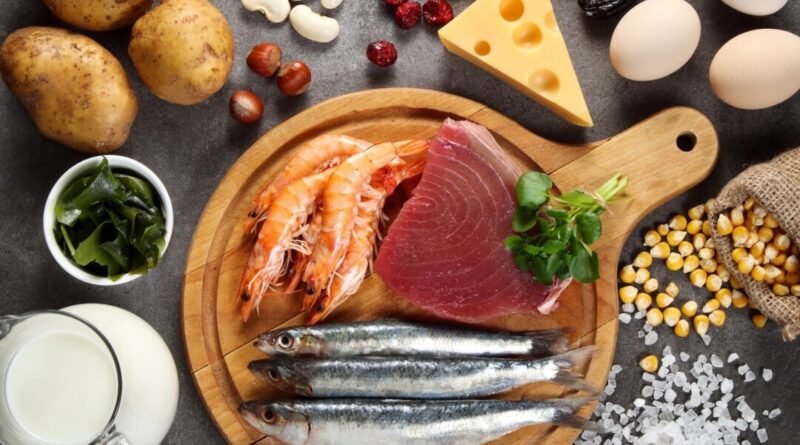The Impact of Iodine-Rich Foods on Your Health
Eating seafood and seaweed is a great way to introduce iodine—an essential trace mineral—into your body.
How Much Iodine Should You Consume Daily?
The recommended daily dose of iodine for adults is 150 micrograms (mcg). Pregnant or breastfeeding women need a higher intake of 220–290 mcg per day. For reference, a quarter teaspoon of iodized table salt contains about 78 mcg of iodine.
What Are the Benefits of Iodine in Your Body?
Proper levels of iodine are essential for the thyroid, brain, liver, and kidneys. Iodine plays a critical role in cognitive function in the brain, impacting functions like memory, motor skills, and comprehension. It also enhances the immune response by aiding white blood cells in bacterial killing.
Around 70–80% of the body’s iodine is stored in the thyroid gland, where it helps in hormone production. Iodine is crucial for the production of thyroid-stimulating hormone (TSH), thyroxine (T4), and triiodothyronine (T3), regulating metabolism, protein synthesis, and enzyme production. Without iodine, the body cannot maintain the required levels of these essential hormones.
Examples of Foods Rich in Iodine
While few foods contain high levels of iodine, common sources like seafood (especially saltwater fish) and seaweed are rich in iodine. Other iodine-rich foods include:
- Cranberries (~400 mcg per 4 ounce serving)
- Enriched white bread (~296 mcg per 2 slice serving)
- Whole wheat bread (~273 mcg per 2-slice serving)
- Cod (~146 mcg per 3-ounce serving)
- Seaweed (nori) (~116 mcg per 5 gram serving)
- Greek yogurt (plain, non-fat) (~87 mcg per 3/4 cup serving)
- Skim milk (~84 mcg per 1 cup serving)
- Iodized table salt (~78 mcg per 1/4 teaspoon serving)
- Cottage cheese (~65 mcg per 1 cup serving)
- Navy beans (~64 mcg per 1 cup serving)
- Baked potato (~60 mcg per 1 medium-sized potato)
- Hard-boiled egg (~31 mcg per 1 large egg)
- Strawberries (~12 mcg per 1 cup serving)
Laura Ali, a culinary nutritionist, suggests that incorporating seafood, dairy products, eggs, and iodized salt into your diet can help meet your iodine requirements.
Effects of Iodine Deficiency
Insufficient iodine intake can result in iodine deficiency, leading to inadequate thyroid hormone levels and compromising various bodily functions.
Although iodine deficiency is uncommon in North America, it remains a serious public health concern in certain regions globally. Approximately 35–45% of the world’s population is affected by iodine deficiency, with specific groups like vegans, pregnant women, and those in iodine-poor regions at a higher risk.
Lack of iodine in the diet can pose serious health risks for pregnant women and their babies, potentially causing birth defects, intellectual disabilities, and other complications. It’s essential to ensure adequate iodine intake to support healthy development.
Ms. Ali advises that individuals who solely use non-iodized salts like kosher salt or Himalayan salt may be at risk of iodine deficiency.
For pregnant women and children, iodine deficiency can result in severe consequences, including intellectual disabilities, birth defects, and even stillbirth. It can also increase the risk of perinatal complications for the mother.
Ms. Ali emphasizes that iodine deficiency can lead to neurological damage in infants and children, affecting IQ, brain development, and potentially causing cretinism, which is a form of congenital hypothyroidism.
Causes and Symptoms of Iodine Deficiency
Iodine deficiency is primarily caused by insufficient dietary intake, although factors like excess fluoride or vitamin A deficiency can also contribute to the problem, affecting iodine absorption and utilization.
Can You Have Too Much Iodine?
Excessive iodine intake, exceeding about 1,100 mcg per day, can lead to iodine toxicity, which can have adverse effects.
Iodine toxicity can be as harmful as iodine deficiency, causing symptoms like goiter, hyperthyroidism, hypothyroidism, and even thyroid inflammation or cancer. While rare, iodine toxicity should be avoided to prevent these serious consequences.





